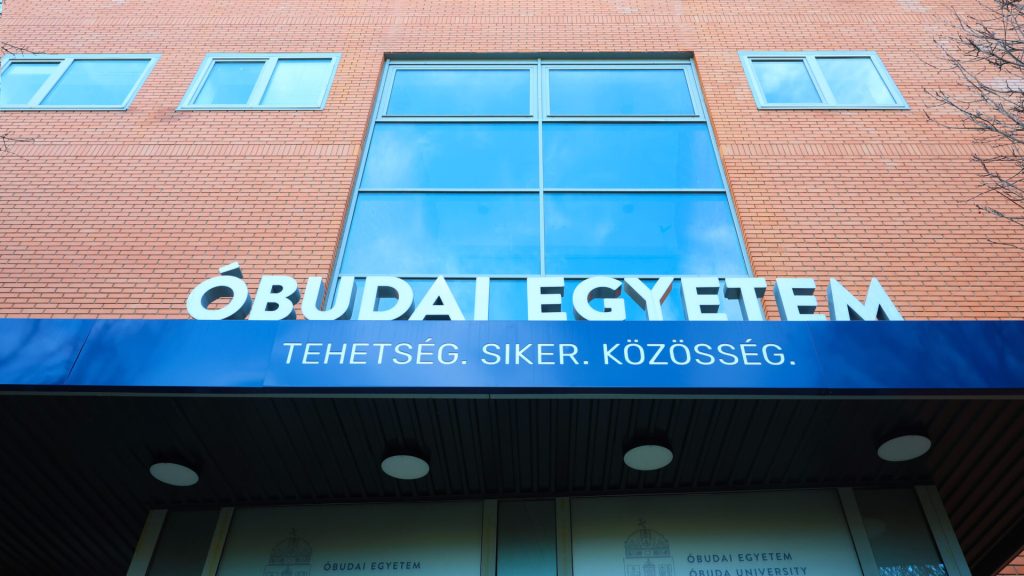Innovation is the driving force of our university. We have created an ecosystem where the process of acquiring innovation culture builds upon each other at different educational levels – stated Prof. Dr. Levente Kovács at this year’s University Innovation Day organized by the Innovation Office of the University Research and Innovation Center (EKIK) on March 21, where participants could gain insight into the university’s innovation processes. “Universities play a key role in strengthening Hungary’s innovation performance. The National Innovation Agency participates in the development of technology transfer activities to utilize the knowledge available at universities through the TTC (Technology Transfer Company) project,” highlighted Réka Barabás, Director of Knowledge Utilization at the National Innovation Agency (NIÜ), in her presentation.
Within the Hungarian system, Obuda University has embarked on a unique and independent path, implementing the quintuple helix model of an investor university, thereby emphasizing cooperation among academia, industry, government, civil society, and our own university community through the scientific results created – stated Prof. Dr. Levente Kovács, who also discussed plans for the establishment of a university capital company supporting innovation processes, science parks, and outlined ideas for the development of the OU ecosystem.
The rector highlighted plans for the establishment of the Initium Plc. (a technology transfer company aiding knowledge utilization), outlining the operational focus areas.
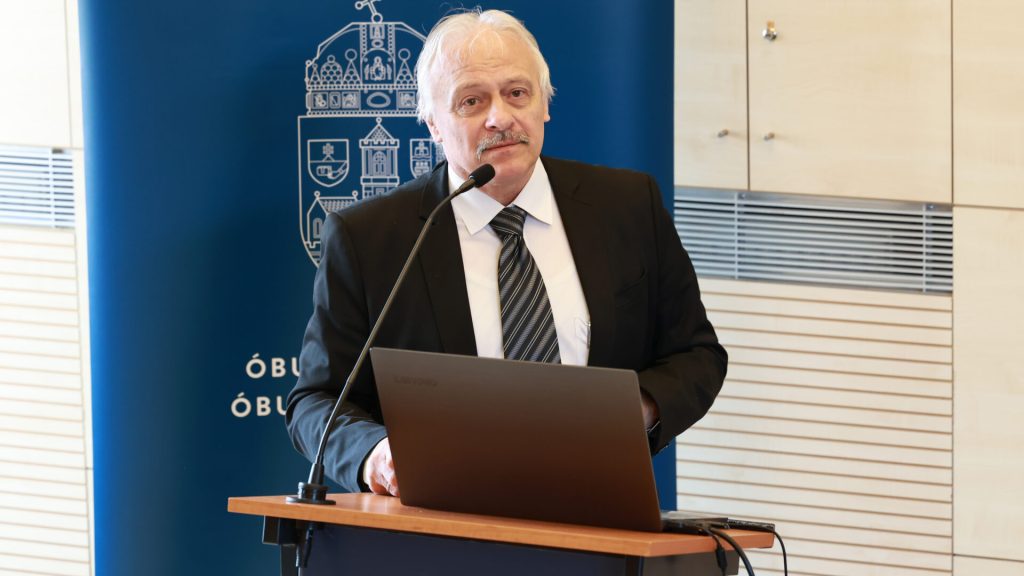
“The protection of intellectual property, the acquisition of associated rights, and their utilization are indispensable catalysts for the innovation process. Without an intellectual property protection strategy, it is difficult to establish our position in the innovation value chain. The National Office for Intellectual Property provides assistance to rights holders through various platforms, ranging from information dissemination to university education and targeted training, to intellectual property diagnostics,” explained Dr. Zoltán Zábori, head of the office’s department
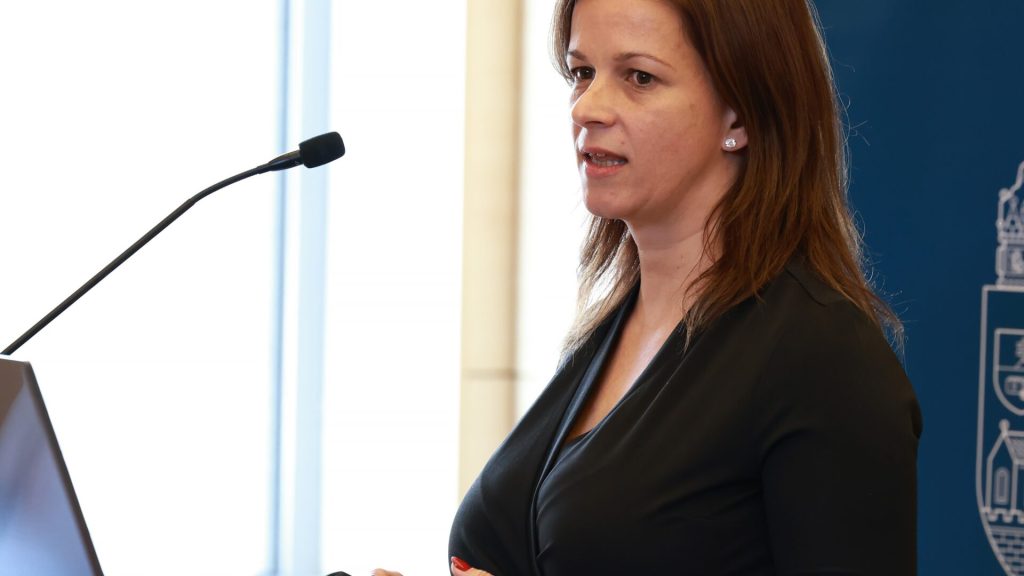
Réka Barabás, Director of Knowledge Utilization at the National Innovation Agency, highlighted a pilot project conducted jointly with the Ministry of Culture and Innovation and the National Research, Development and Innovation Office to develop a technology transfer model that can be applied to universities and research networks. Its most important element involves launching technology transfer companies fully owned by universities, with the project starting at five universities (including Obuda University) with the professional coordination of the NIÜ.
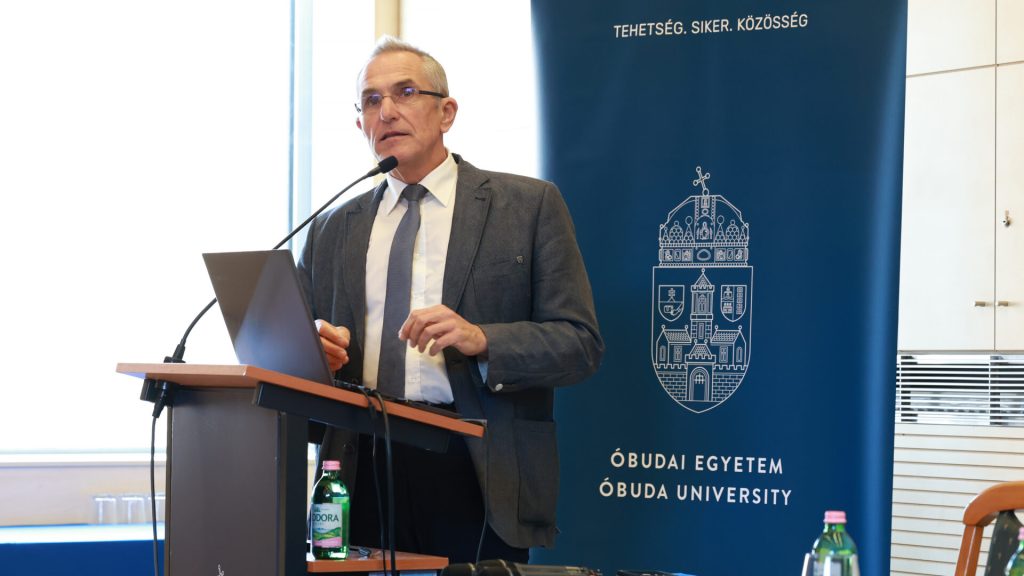
Prof. Dr. László Gulácsi, scientific deputy rector, presented Obuda University’s innovation ecosystem. He stated that the university provides adequate support in bringing locally generated ideas to life. He highlighted the university’s outstanding research quality in the V4 region, as well as the significance of the Innovation Management Doctoral School, which is unique in the regional context.
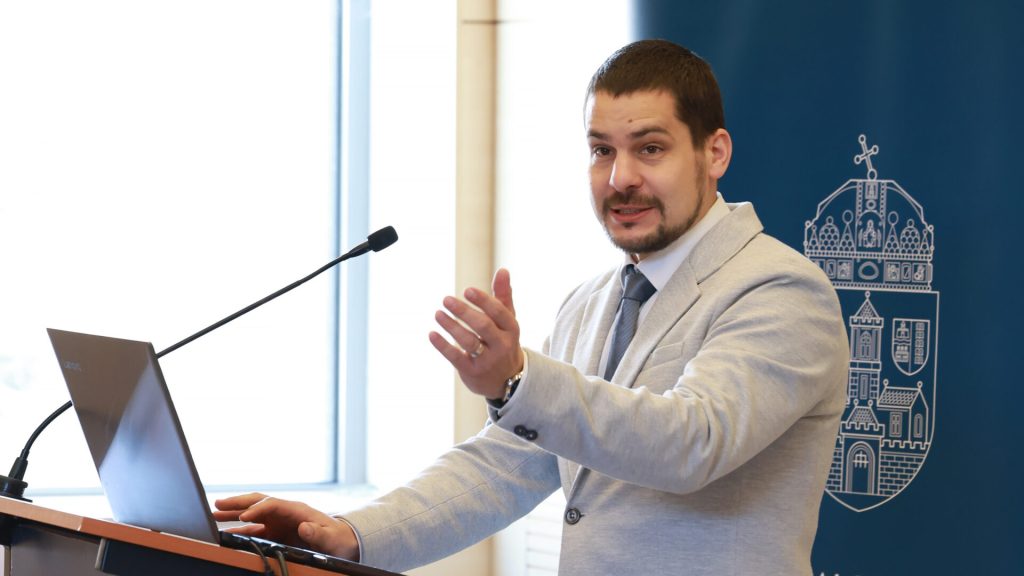
Prof. Dr. Tamás Haidegger, Director of the University Research and Innovation Center, emphasized in his presentation that with government support, the newly launched Technology Transfer Companies at the five selected universities, including Óbuda University, will enable market-conforming, Western-style, advanced innovation management. Through these, it will be possible to effectively support innovation projects ranging from the smallest student initiatives to the most complex projects coming from industry.
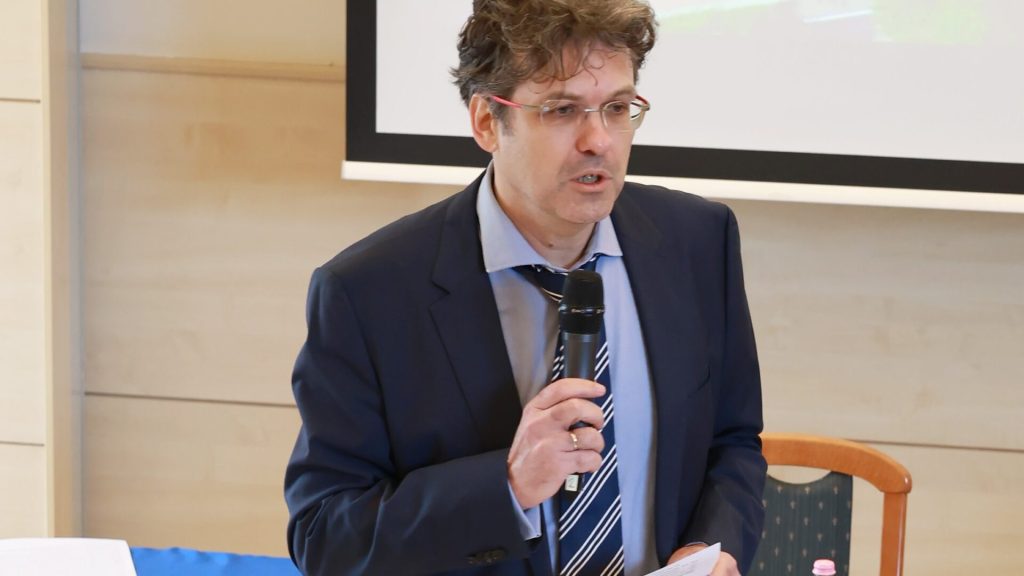
Dr. Zsombor Zrubka, Head of the Health Economics Research Center, presented the results of a study on innovation and entrepreneurial skills among first-year students of the Neumann János Faculty of Informatics. He explained that they adapted questionnaires used by renowned foreign universities for years to assess the effectiveness of their entrepreneurship and innovation training. The results of the first survey are promising, showing a correlation among Hungarian students between entrepreneurial, innovation, and research experiences. “Our research results contribute to better supporting our students in realizing their innovative ideas,” he added.
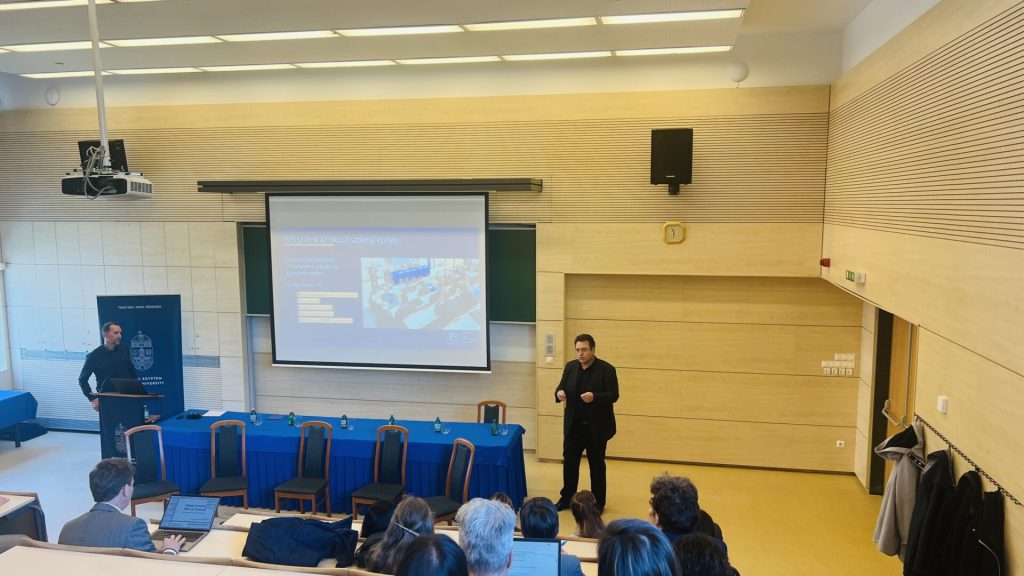
Imre Hild, CEO of Obuda Uni Venture Capital, and Károly Szántó, Director of Venture Studio, explained the essence of setting up and operating the venture capital company. Their goal is to support pioneering ideas from conception to implementation through financial and professional assistance.
Csaba Árendás, innovation and business partner at EKIK, shared fresh experiences gained in the university innovation space. During the roundtable discussions led by Prof. Dr. Péter Galambos, deputy director of EKIK, young researchers and startups shared their experiences at EKIK. Mentored teams also presented themselves through innovation workshops, and a quiz game was held, along with a Mentor Expo by the Innovation Office’s Proof of Concept mentors.
The IGEN workshop launched last year by EKIK, where students had to solve corporate problems in small groups, was successful. As recognition for their work, certificates were awarded to them by Prof. Dr. Tamás Haidegger.


